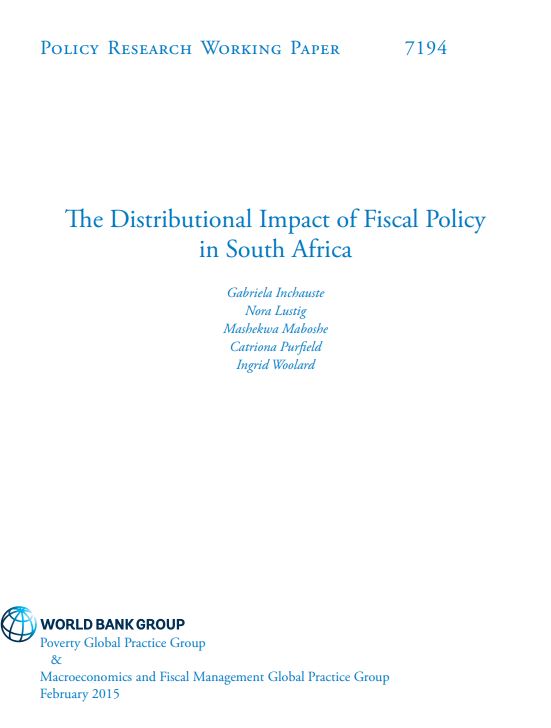Protecting Latin America’s Poor During Economic Crises
History tells us that economic crises cause large increases in poverty. The most recent economic crisis will cause Latin America’s GDP to contract around 2 percent in 2009.
This paper, published uses the 2010/11 Income and Expenditure Survey for South Africa to analyze the progressivity of the main tax and social spending programs and quantify their impact on poverty and inequality. The paper also assesses the redistributive effectiveness of fiscal interventions given the resources used. Because it applies the Commitment to Equity methodology, the results for South Africa can be compared with other middle-income countries for which the framework has also been applied. The main results are twofold. First, the burden of taxes -- namely the personal income tax, the value added tax, excises on alcohol and tobacco, and the fuel levy -- falls on the richest in South Africa and social spending results in sizable increases in the incomes of the poor. In other words, for the components examined, the tax and social spending system is overall progressive. Second, for these elements, fiscal policy in South Africa achieves appreciable reductions in income inequality and poverty. Moreover, these reductions are the largest achieved in the emerging market countries that have so far been included in the Commitment to Equity project. Although fiscal policy is equalizing and poverty-reducing, the levels of inequality and poverty that remain still rank among the highest in middle-income countries. Looking ahead, as South Africa grapples with slow economic growth, a high fiscal deficit, and a rising debt burden, addressing the twin challenges of high inequality and poverty will require not only much improved quality of public services, but also higher and more inclusive economic growth.
History tells us that economic crises cause large increases in poverty. The most recent economic crisis will cause Latin America’s GDP to contract around 2 percent in 2009.
Haiti represents one of the most complex and deeply rooted challenges facing U.S. foreign policy in the Western Hemisphere: a failing state on the doorstep of the world’s most powerful nation.
Since achieving independence in 1804 to become the world’s first free black state, Haiti has been beset by turbulent, often violent, politics and a gradual but seemingly unstoppable slide from austerity to poverty to misery.
